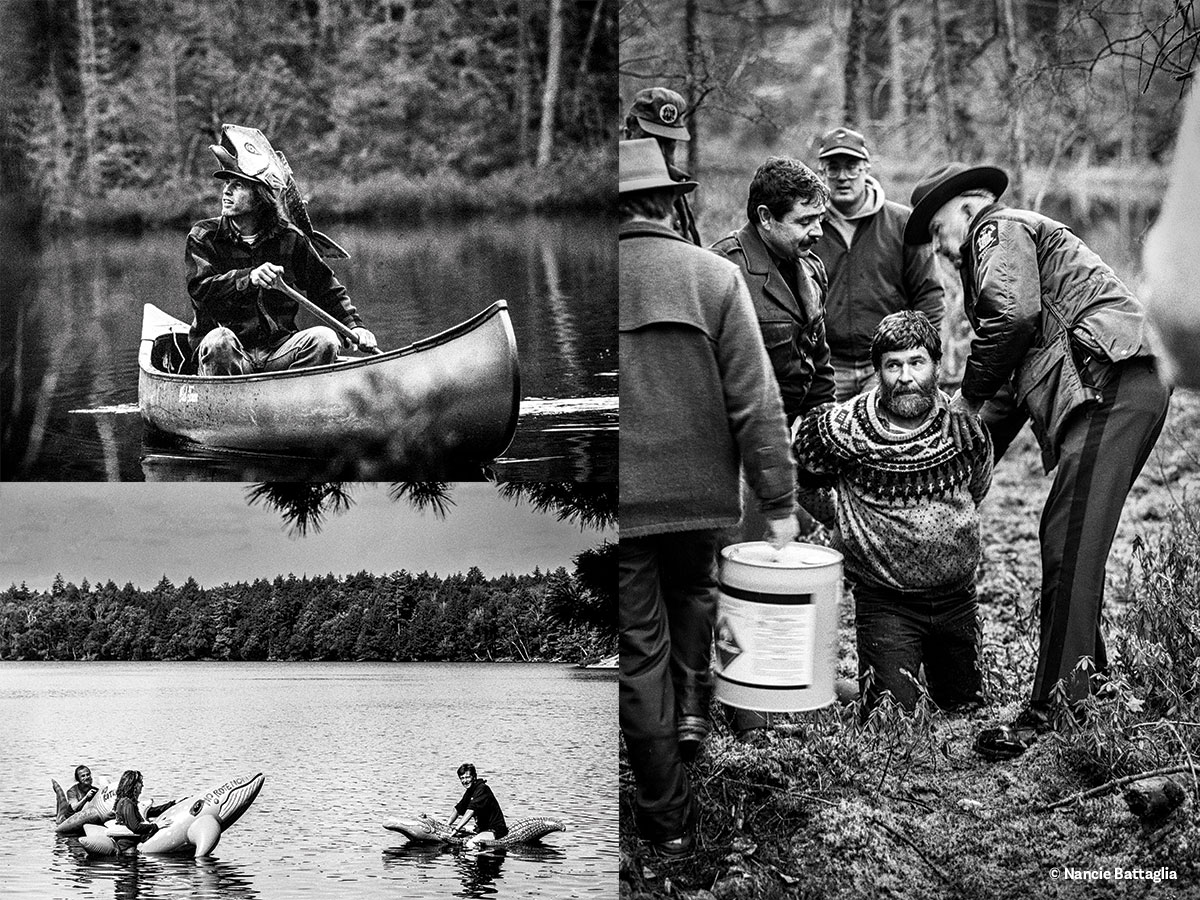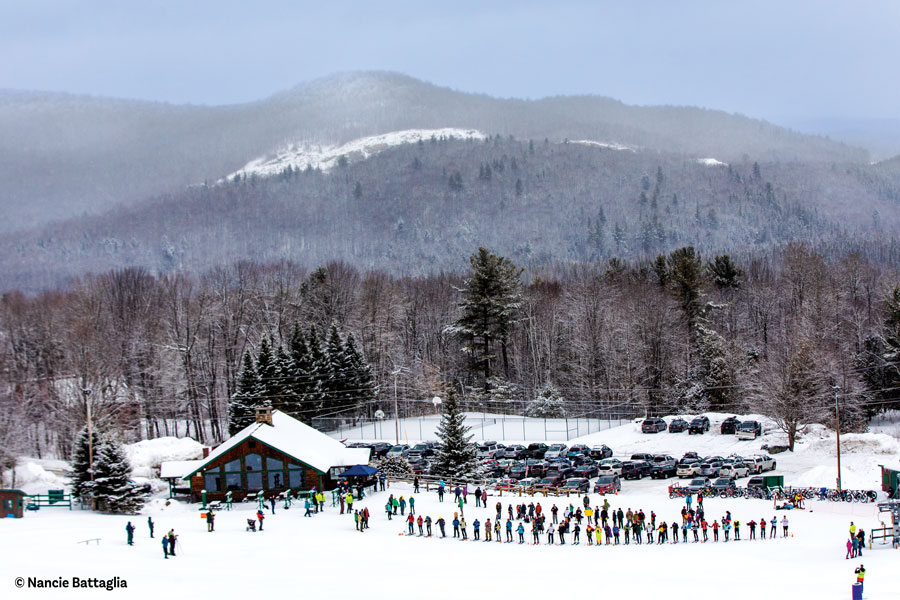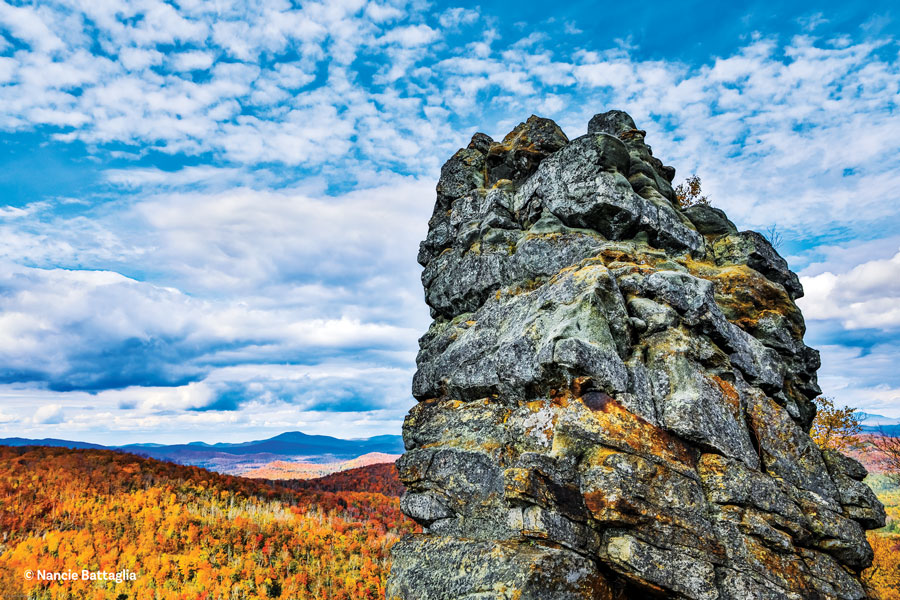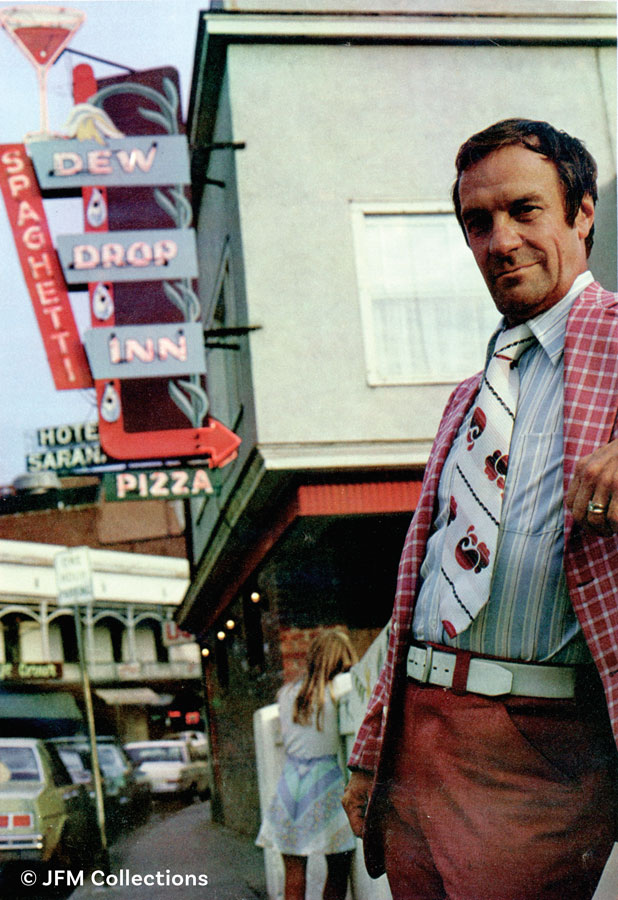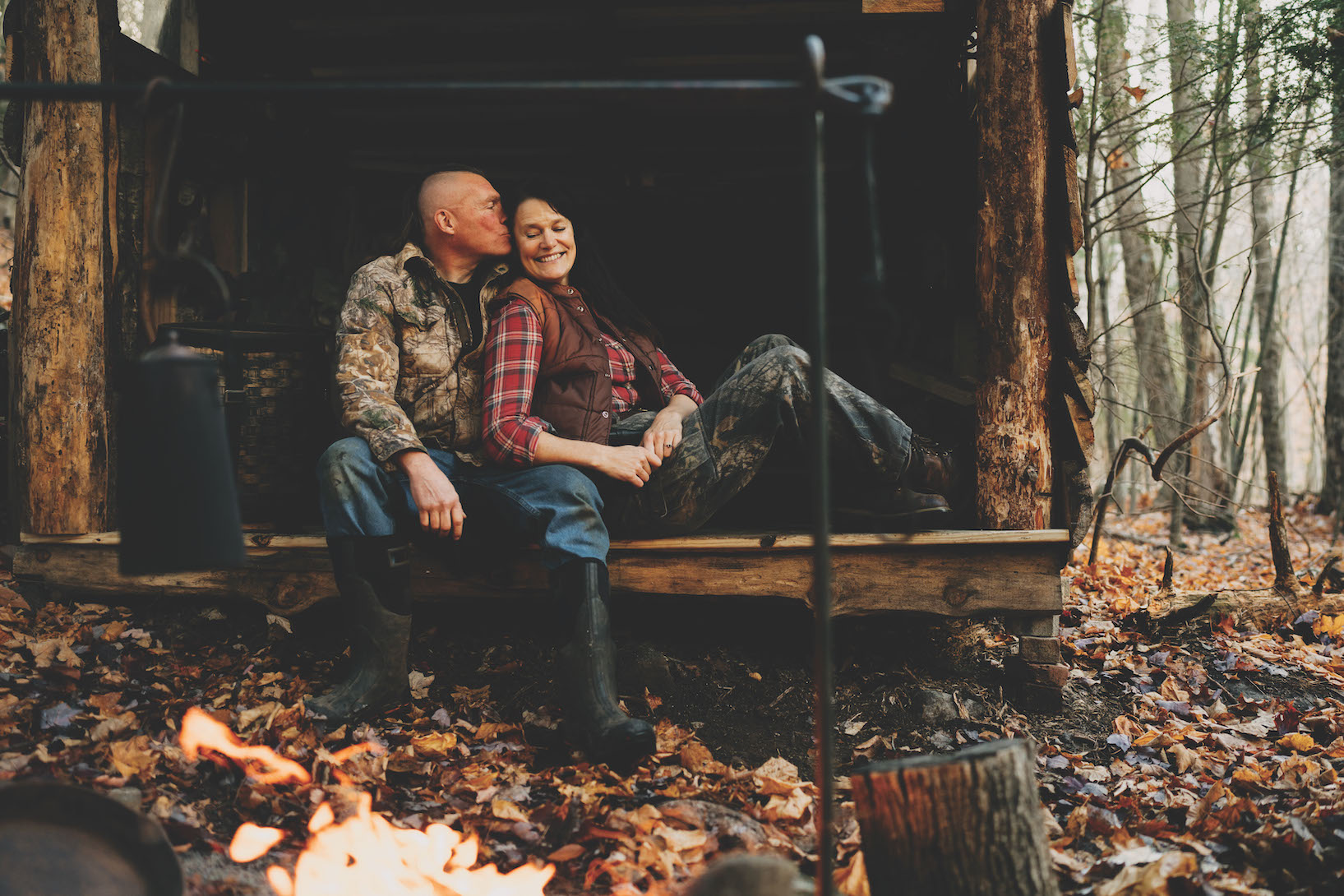Athol’s groundbreaking feminist collective
My draw to the Adirondacks began 50 years ago while on an Upper Saranac Lake canoe trip, and has continued ever since. In 1974, while living in Central New York, I jumped at the chance for another visit after I saw a letter to the editor in Ms. magazine for a women’s retreat in Paradox, in the eastern Adirondacks. Marie Deyoe, the retreat organizer, wrote, “The women will live in A-frames, domes, and in a beautiful log cabin. They can eat meals communally.”
I was going through a stressful stage in my life and welcomed time with supportive women—and I was intrigued with the statement in the letter: “We hope that our retreat will fulfill a need for women who are going through periods of stress or changes in lifestyle, or who just need a place where they can thoroughly be themselves.”
That summer I spent a weekend at the women’s retreat with my six-year-old daughter, a few other women and their children. I took leisurely walks by myself while my daughter joined the other children for games on the deck of the main log cabin. I enjoyed this freedom.
One afternoon Marie Deyoe and I walked to a nearby pond, sat on the shore, and talked about our recent divorces. Marie had come from a 13-year marriage to an IBM chemist. “I had two cars, a pool, a nice house and all that, but I wasn’t satisfied with myself,” she had told me. The transition from a suburban housewife to a single mother with two children had not been easy for her. At that time she sought a different lifestyle with other women. I felt comforted sharing with a kindred spirit.
The following fall Marie and six other women from the women’s retreat in Paradox pooled their resources and bought the former Moose Mountain Lodge, a 23-acre resort in Athol, in the town of Thurman. The lodge dates back to 1927, when Jake and George Drexel bought a farm that included an 1860s farmhouse, barn, garage, blacksmith shop and pigsty. The Drexels began taking in boarders, and by 1930 business was so good that they added a five-bedroom annex to the house, converted the toolshed into a one-bedroom cabin, added a bunkhouse onto the barn, and converted the barn into a recreation hall. The resort eventually closed in the early 1970s. It was the perfect property for Marie Deyoe and her friends.
This complex of buildings was on a sloping hillside overlooking a pond. It could house 27 women, with additional camping space in the field behind the barn. The original seven women and their eight children established their collective here, calling it A Woman’s Place. Their plan, according to their vision statement, was to establish the community “as a unique opportunity for women of all ethnic groups and classes to come together in a class-less society, to meet each other on common ground, to come to accept and love each other, and to carry this trust and affection back with them into the larger society.”
The 1970s was a time when women gathered to escape a hierarchical society dominated by men. They wanted the freedom that results from the elimination of gender roles. The second wave of feminism gave them the courage to bond, to deepen a sense of community, to connect with nature. The experience of hundreds of intentional communities around the world, mixed and single gender, gave them the audacity to try this new way of living.
In the beginning, the residents of A Woman’s Place lived year-round in the main lodge while sharing meals and childcare. But living communally isn’t always easy; problems surfaced. So they organized a board of directors, responsible for addressing issues and planning workshops and self-help retreats for guests. They invited other women to stay in the cabins and sign up for sessions on topics like backpacking and assertiveness training.
Through the years there were as many as 75 residents on the property. These permanent members were called caretakers. Their tasks were completed on a rotation and included housekeeping, maintaining the gardens and facilities, conducting programs for the retreats and cooking for guests. Some took vocational classes in plumbing and auto mechanics to help maintain the property and their vehicles. Caretakers produced arts and crafts and sold them at the collective. Some sought jobs in Warrensburg. Marie worked as a research assistant at the John Thurman Historical Society. Despite their various forms of revenue, paying the mortgage, real estate taxes, and affording upkeep on the buildings was a constant struggle.
In 1982, eight years after starting their intentional community in Athol, it closed. The collective owed $5,000 in back taxes and the mortgage hadn’t been paid in months.
I stayed at a woman’s place in 1980. Thirty-eight years later, and now living in the Adirondacks year-round, I’ve often thought about the collective and how it instantiated a time when women joined together during the Feminist Movement. I’ve thought about the women, mostly from cities and suburbs with little experience in surviving such a rustic, rural place. I’ve also wondered how area residents viewed their feminist neighbors.
Jill Galusha, who with her husband, Randy, operates Toad Hill Maple Farm, in Athol, attended Warrensburg High School with Marie Deyoe’s daughter, Robin Zander. They rode the school bus together. “We went to a Halloween party at A Woman’s Place once a year,” said Jill. She recalled bobbing for apples. She also attended the collective’s movie nights for the neighborhood kids.
Jill’s mother owned a local restaurant that burned in the fall of 1974, shortly after the women established their collective. “We lost everything in the fire,” said Jill. “They helped us. Even planted a garden. They were our friends and neighbors.”
She added, “My mom was very creative. She grew up in New York City and appreciated the women. Some of the neighbors may have reacted differently—this is not a very liberal place.”
Another neighbor I interviewed said, “Those homosexuals did not belong here. We are a tight-knit community. I did not want my children playing with theirs.”
Priscilla Wakely Dean lived and worked at the nearby Northwoods Lodge. “The local men would come in after work,” Priscilla said. “They told me they heard the rumor that a bunch of ladies were moving into the old Moose Lodge. They went wild, thinking it was a cat house.” The men, she said, were disappointed after learning the women were feminists rather than prostitutes.
“One day,” recalled Priscilla, “a big tall man came in with a three-piece suit, white shirt and trimmed hair. He came over to me showing an FBI badge.” He held up a photograph of a woman, and asked Priscilla if she’d seen her at the bar or at the nearby Woman’s Place. Priscilla looked at the photo closely, but did not recognize the person. Later, she realized it was Squeaky Fromme, a Charles Manson follower who was later incarcerated for pointing a gun at President Gerald Ford. A few neighbors said that agents were also looking at A Woman’s Place for Patty Hearst, known for her kidnapping by and collusion with the Symbionese Liberation Army. (Neither were at the collective.)
A Woman’s Place changed lives. “I never had so much fun in my life,” said Pat Stoffel, a caretaker from 1981 to 1982. “And we knew it was a catalyst for growth—knew it when we were there.” Vicki Mellott, another caretaker, said, “It’s hard to describe, this feeling of community. It reflected life. I carry a warm spot in my life for the time spent there.”
Last June, 20 alumnae and neighbors gathered at the site of A Woman’s Place, now a vacation retreat called, again, Moose Mountain Lodge, and shared stories of our time at the collective.
Marie’s daughter Robin said, “I used to explore the beautiful 23 acres of trails and fields with my poetry notebook and the collective’s dog, Sasha. Those were, and still are, some of the most peaceful moments of my life.” She added, “It certainly gave me a different outlook on life and a wider view of the possibilities life has to offer. AWP inspired me to become my own woman.”
A reunion at Moose Mountain Lodge is planned for September 2019 to celebrate the 45th anniversary of the birth of A Woman’s Place. See the collective’s Facebook page or contact Lorraine Duvall via www.lorraineduvall.com to learn more.















